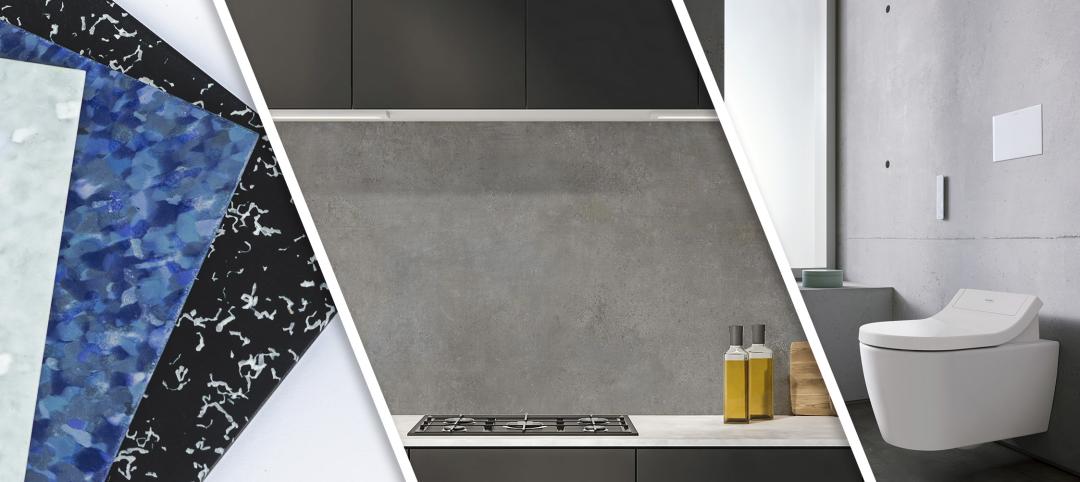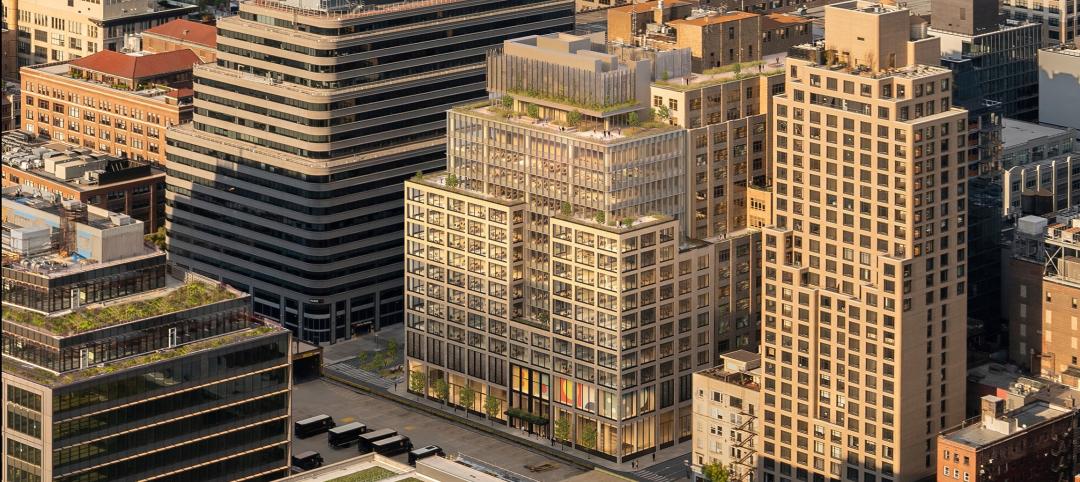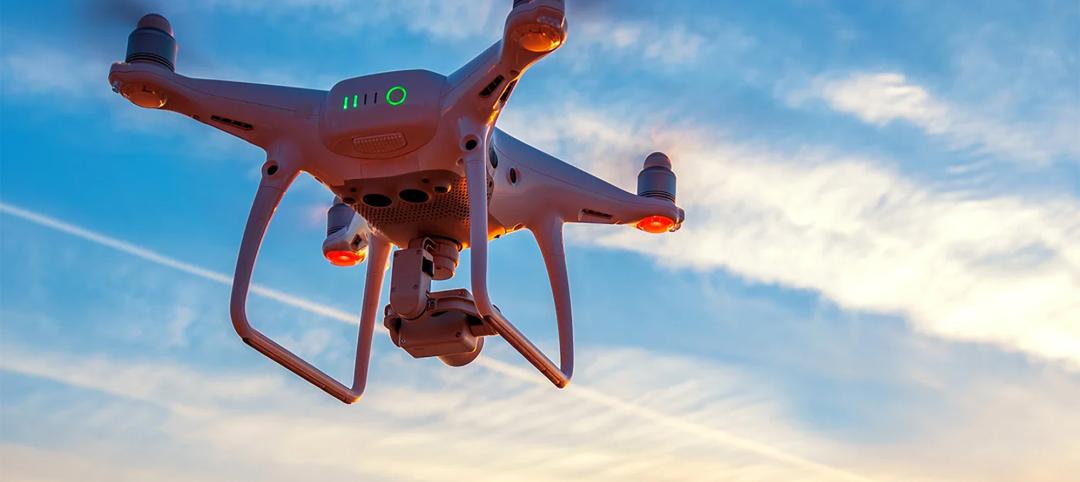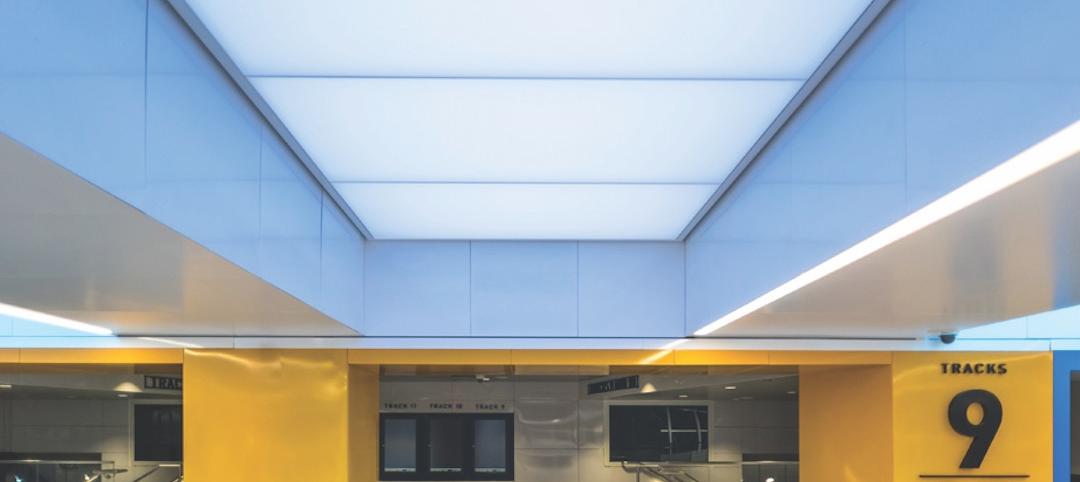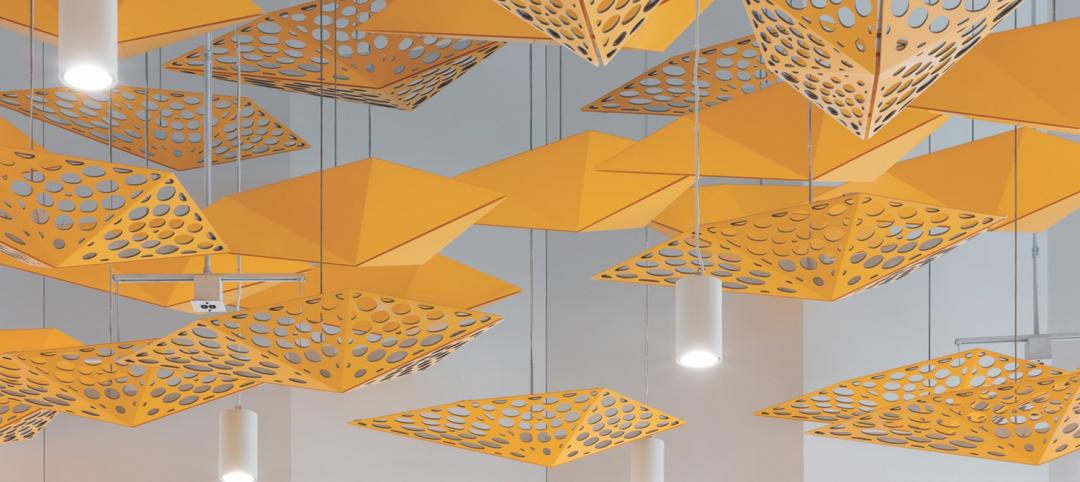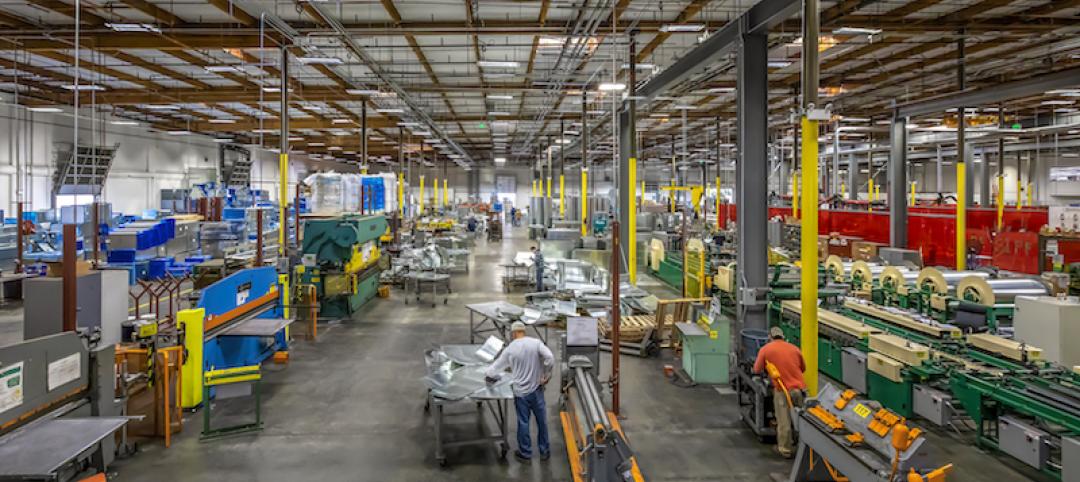Robotic Parking Systems (RPS), a Clearwater, Fla.-based provider of some of the largest and fastest high-density autonomous parking garages in the world, is poised to make a push into the U.S. market at a time when developers are rethinking just how much parking their buildings will actually require in the future.
RPS, which built the first autonomous garage in the United States in Hoboken, N.J., in 2001 (a garage that’s still operational to this day), has been focusing its attention in recent years on the Middle East. The company is preparing to release an online, AIA-approved education program that provides details for planning, installation, and operation of autonomous parking facilities.
While it did not give specifics about which markets it is targeting or its timeframe for domestic growth, RPS tells BD+C that it can now provide general contractors and architects with metrics that compare its system with other autonomous garages. “We are geared to bring this successful technology to the U.S.,” which could include partnerships through which RPS handles the parking aspect of a new construction project, the company states.
SEVERAL MIDDLE EASTERN PROJECTS PROVIDE PERFORMANCE RECORD FOR AUTONOMOUS GARAGES
Robotics Parking Systems touts a track record for its systems that, through design redundancy, it claims guarantees 99.99% uptime and a retrieval rate of over 400 vehicles per hour.
Also see: A New ULI Report Chronicles the Depaving of America
The company points specifically to projects in Dubai, UAE, and Kuwait with some of the largest automated parking garages, as measured by Guinness World Records. The latest record holder (as of 2018) is Al Jahra Court Complex, which was designed with a combination of 684 concrete ramp parking spaces with 2,314 automated spaces on top. RPS’s portion of this project provides almost 3.5 times the number of conventional ramp-style parking spaces in about the same cubic area. (The conventional space is seven levels and over 97 ft high; RPS’s portion is 11 levels and 115 ft high.)
This robotic parking system can deliver seven cars per minute, with an average retrieval time of 177 seconds. It has a peak traffic throughput of 425 cars per hour inbound/outbound.
RPS claims that what makes its system different from competitive automated systems is “advanced technology” whose unique design can independently move dozens of vehicles simultaneously on electro-mechanical robots on three axes (left-right, forward-back, and vertically).

RPS's “advanced techology” combines software, sensors, platforms, lifts, motors, and other mechanical gear to transport vehicles to open slots in the garage. Through electronic and mechanical redundancies, this system claims that it never needs to shut down, even during maintenance or repair.
As the vehicle owner drives into a street-level terminal, a combination of software controls, platforms, lifts, motors and sensors transports the vehicle to an available open slot in a multi-level shelf system. When the owner wants to leave, the system locates the vehicle and returns it to a ground-level exit terminal.
Also see: Gly Construction to build underground, robotic parking garage for Seattle Cancer Care Alliance
The parking system’s major electrical and mechanical components have at least one backup system, and in some cases as many as four. So, “if any machine goes down to be serviced, you still have full operation without interruption,” says Richard Scarth, MRICS, senior development manager for Seven Tides, a luxury property developer and holding company, whose Ibn Battuta Gate mixed-use complex in Dubai, UAE, has had an autonomous parking garage for 765 vehicles since it opened in 2009.
Scarth notes that because this building had a limited amount of land for parking, “the only we way could squeeze in the extra parking was to use high-density, autonomous parking technology.”
COST OF PARKING SYSTEMS DEPENDS ON CAPACITY

RPS claims that its system can increase a building's parking density by 200-300% within the same footprint as a conventional concrete-ramp garage.
When asked about costs for its autonomous system, RPS directed BD+C to the website roboticparking.com, which states that the cost of robotic parking facilities depends on three factors: the number of parking spaces, the amount of land, and peak traffic loads. So assuming a parking garage with 750 cars and peak traffic at about 30% of parking capacity, the total cost of robotic facility would be $24,567 per space, versus $26,433 per space for a concrete ramp garage with the same features such as electric vehicle charging stations, security, and wayfinding.
(This calculation is a bit skewed because it adds $2.25 million for a concrete ramp garage to include autonomous car driving capacity into and out of the garage.)
Also see: Do car-free downtown zones work? Oslo, Yes; Chicago, No
RPS also notes that its system typically is not conducive to retrofitting an existing garage.
A bigger question for RPS and its competitors is what future demand for parking garages will look like. Ride sharing has been changing the way Americans view their relationships with automobiles. And cities like New York and San Francisco have converted streets and entire blocks to pedestrian-only thoroughfares.
As more metros commit to reducing their carbon emissions over the next 10 to 30 years, those plans invariably include reducing vehicular traffic in favor of other modes of transportation that are environmentally palatable. Indeed, some architectural firms have already come up with designs for adapting parking garages into something else—like multifamily housing or offices—if reduced demand warrants such reuse.
Related Stories
Smart Buildings | Jul 1, 2024
GSA to invest $80 million on smart building technologies at federal properties
The U.S. General Services Administration (GSA) will invest $80 million from the Inflation Reduction Act (IRA) into smart building technologies within 560 federal buildings. GSA intends to enhance operations through granular controls, expand available reporting with more advanced metering sources, and optimize the operator experience.
AEC Tech | Apr 30, 2024
Lack of organizational readiness is biggest hurdle to artificial intelligence adoption
Managers of companies in the industrial sector, including construction, have bought the hype of artificial intelligence (AI) as a transformative technology, but their organizations are not ready to realize its promise, according to research from IFS, a global cloud enterprise software company. An IFS survey of 1,700 senior decision-makers found that 84% of executives anticipate massive organizational benefits from AI.
Products and Materials | Mar 31, 2024
Top building products for March 2024
BD+C Editors break down March's top 15 building products, from multifamily-focused electronic locks to recyclable plastic panels.
75 Top Building Products | Dec 13, 2023
75 top building products for 2023
From a bladeless rooftop wind energy system, to a troffer light fixture with built-in continuous visible light disinfection, innovation is plentiful in Building Design+Construction's annual 75 Top Products report.
Products and Materials | Sep 29, 2023
Top building products for September 2023
BD+C Editors break down 15 of the top building products this month, from smart light switches to glass wall systems.
Office Buildings | May 15, 2023
Sixteen-story office tower will use 40% less energy than an average NYC office building
This month marks the completion of a new 16-story office tower that is being promoted as New York City’s most sustainable office structure. That boast is backed by an innovative HVAC system that features geothermal wells, dedicated outdoor air system (DOAS) units, radiant heating and cooling, and a sophisticated control system to ensure that the elements work optimally together.
AEC Tech | May 1, 2023
Utilizing computer vision, AI technology for visual jobsite tasks
Burns & McDonnell breaks down three ways computer vision can effectively assist workers on the job site, from project progress to safety measures.
75 Top Building Products | Dec 16, 2019
101 Top Products for 2019
Building Design+Construction readers and editors select their top building products for the past 12 months in the fourth-annual 101 Top Products report.
75 Top Building Products | Dec 16, 2019
Top Building Systems Products for 2019
FabricAir’s ceiling-hung fabric duct and Ellumi Lighting’s bacteria-killing lights are among the 13 new building systems products to make Building Design+Construction's 2019 101 Top Products report.
M/E/P Systems | May 23, 2019
Process analysis is how one MEP producer is coping with the industry’s labor woes
Southland Industries takes a measured approach to leaning into technology.





